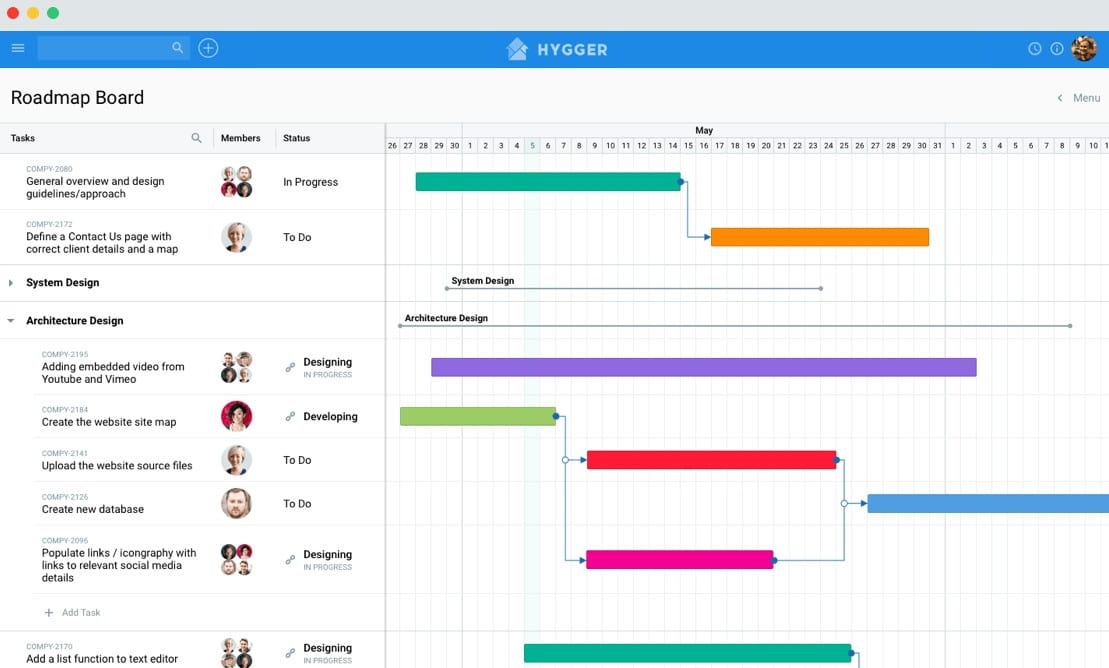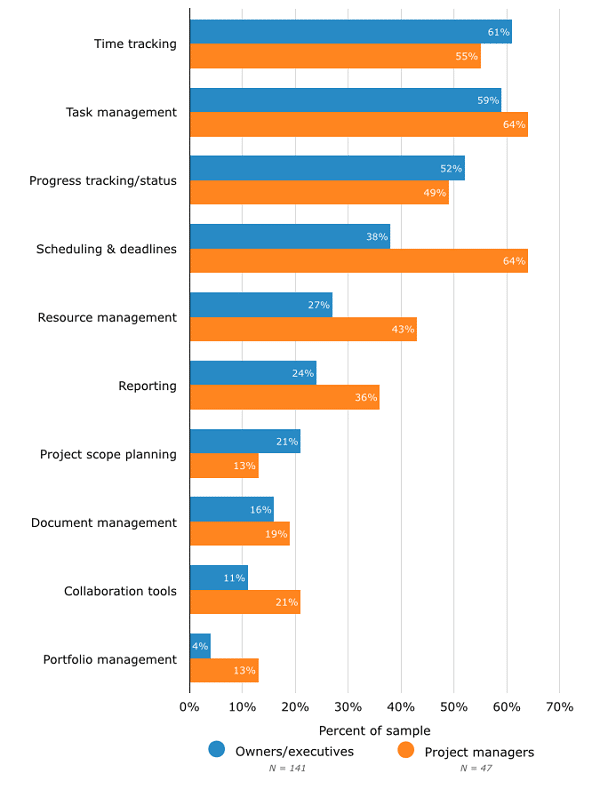
Deadlines are the Greatest Source of Content Marketing Inspiration
“I’ll need that article in my inbox before you leave for the day.”
“Are we still on track for getting those photos captioned and queued for the morning?”
“Hey—you were supposed to have submitted that blog two hours ago. Where is it? What’s the delay?”
Deadlines rule our lives. From a young age, we are given deadlines for everything: From how we should be developing to when our coloring assignment is due to when we have to pay our bills or risk the lights going out. Yes, deadlines help keep us in check. It gives us some type of order, lest we all go about on our own whims and do whatever we want (bills would never get paid).
But when it comes to marketing, do deadlines actually do more harm than good? And when we commit to a deadline, to what are we actually committing?
Quick Takeaways:
- If it wasn’t for deadlines, we’d be forever chasing perfection, especially in creative fields.
- When there is wiggle room for a deadline, start a conversation with the client to see if you can put in more effort or improve the deliverable.
- Have a process for meeting deadlines, and you’ll meet them most of the time.
Deadlines and the Creative Process
I agree with the infamous Mark Twain quip, that “deadlines are the greatest source of inspiration.”
In one sense, deadlines are good for marketing. As creative, we could go on forever with one project, brainstorming idea after idea, trying to come up with one that is more exciting, more engaging than the next. But we are inevitably stopped by the deadline. We need to get an idea out onto paper, mocked up, designed, written—whatever it may be, by that date.
Deadlines help restrain our creativity. It prevents us from exploring too many ideas and extending them out to see if they work. But at other times, it can leave us grasping at our hair, trying to come up with something—anything—to present to the client at the promised date of delivery.
And in cases like those, does our strict adherence to the deadline mean that we doing a disservice to our clients?
Getting it Done on Time
When we tell clients or managers that we’ll get them their deliverable (whatever it is) at a certain time, what are we really promising them? We don’t make promises on what this deliverable will do for their company—whether it will sell more of their products or increase brand awareness.
All we do is promise to deliver them something on that date.

Sometimes, we have a tight deadline. There’s a launch that is going to happen. A new business merger is going to take place. Whatever the situation may be, there are some times that we are unable to avoid deadlines. So we work late hours, have brainstorming sessions for lunch, and seek inspiration from every crack and crevice of everything we see.
But those other times, when we have a bit more time? That’s when we need to strike up a conversation.
Now or Later?
Clients or managers will come to you because they trust in the work that you do, and they trust that you’ll get it done on time. Hell, it’s even a contractual obligation for you to do so. But most clients, if you see that there is some wiggle room in terms of time, will be thankful—not upset—if you ask them for more time because you don’t want to give them okay; you want to give them exceptional.
And what business would say no to that?
Sure, there’s still a deadline aspect, but you’re allowing yourself more time to see what you could do with that extra day or extra week versus having to give them what you have without that additional time. You never know what spark of creativity will hit you in the next day that hadn’t come the day before.
For the good of the deliverable, but mainly for the good of the client, you need to use your best judgment and determine if there can be a conversation about extending a deadline. In fact, a survey about project management software showed that features related to scheduling and deadlines were considered far more important by project managers than by owners and executives.

If you want to extend a deadline, present your case as to why: What you have is good, but you know that with more time, it can be even better. Use great content marketing examples to show them. And when you’re going into this conversation, have a deadline extension in mind. Let them know what you believe you need, and see if they’re okay with that extension. If not, discuss meeting in the middle somehow. And if they say no, well, at least you tried.
Down with Deadlines… For Good?
As a society (think: globally), deadlines help keep things organized for us. It will be a rare occurrence, if ever, for a client to solicit you for a job and say, “Just get it to us whenever it’s done and great.” If anything, that’s even more frightening than a quick turnaround demand!
Deadlines can be both good and bad, for every reason aforementioned. But there are ways that you can avoid having deadlines infringe on your creativity and ability to deliver the absolute best to each and every one of your clients. It includes some organization and self-discipline.
Defeat the Deadline Despair
Try incorporating these practices into your own marketing firm or with your team and see what difference they make.
- Set internal deadlines.
We know, we know: More deadlines? But any deliverable worthy of a client will have had at least a few days to simmer, that is, where it sits, you maybe look at it a few times, but otherwise, you’re satisfied with handing it over to the client. You don’t want to be working up to the hour that your deliverable is due; that’s how mistakes get made. Instead, set an internal deadline a few days before the client deadline. That means the final deliverable is client-ready and could be sent that day, if needed. You won’t be stressed last minute, and you can take some additional time to run through your deliverable with attentive eyes. - Cap brainstorming sessions.
Brainstorming sessions can go on for hours, but at some point, they become more detrimental than productive. Cap your brainstorming session to an hour or two hours, maximum. At that point, even if you’re hot on an idea, take a moment to step away. Jot down all final thoughts and have everyone leave the room. Go work on other projects, grab a coffee or a snack, and then reconvene later that day. It may seem counterproductive to “stop it while it’s hot,” but we promise, you’ll be better off for it. Plus, you’ll never know what someone cooked up during their time out of the think tank! - Take time to step away.
Even when you’re not brainstorming, it can be easy to focus your whole day at work on one client project. Sometimes, you do, for whatever reason, whether you really feel that creative spark or (*cough*) have to meet a deadline. But it’s also important to take a break, even a 15-minute break, from the task at hand. Allow the mind to wander or focus on something else. You’ll be surprised at what your mind conjures when you’re not trying to think of something! - Be realistic with yourself.
Ultimately, you and the client set deadlines for deliverables. You want to please the client, but you also need to be realistic about your workload and your ability to successfully execute what they are asking of you. For your own sanity, it is always okay to pushback. But you should also let the client know that you are pushing back because of their best interests. You can also give them options, too. For example, if they want too much by a certain date, scale down what you can give them. Tell them you can give them A, C, and D by their requested date, but you’d have to cut out B. And if they want all four items, you’ll need an extension on the deadline.
Undefeated by Deadlines
We’re not saying that by incorporating these four practices into your workflow means that you will never have to ask for a deadline extension ever again (we wouldn’t mislead you). But we do promise that you will be better able to manage the deadlines you are given.
Deadlines are fine when they are realistic. And unfortunately, many of the deadlines we place on ourselves are not. We want to please our clients, of course, but at what cost? At what cost to ourselves, to the quality of our work, to the final deliverable that we submit to them?
We manage deadlines; deadlines shouldn’t manage us or dictate the quality of the work that we put out into the world. At times it can be a struggle. They’re always going to be part of business, but the more we learn about to better manage them, ourselves, and our creative minds, the better it is for all parties involved.






